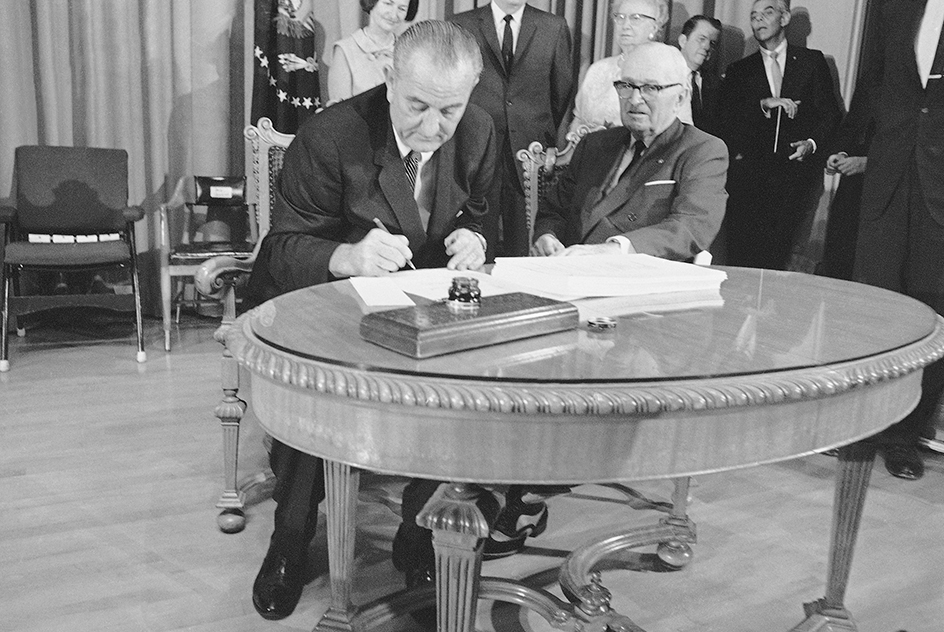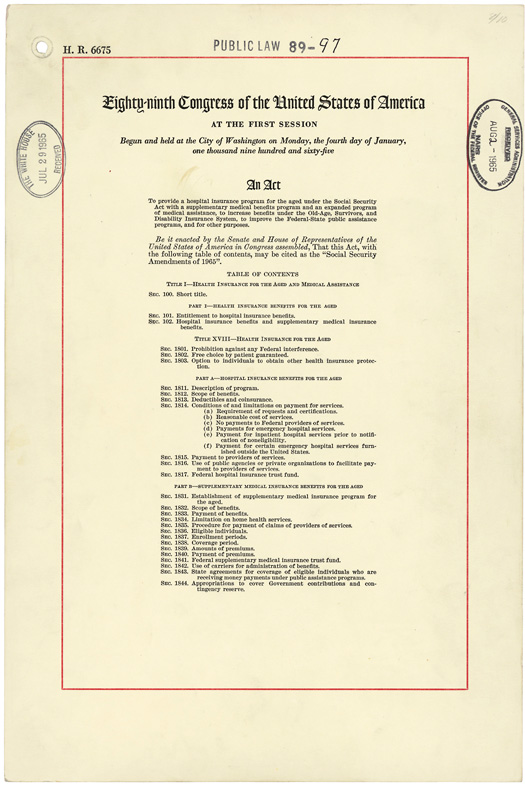Medicare is a United States government health insurance program that covers nearly all people age 65 or older. It also covers certain people with kidney disease and people who have received Social Security disability benefits or Railroad Retirement Board disability benefits for a minimum of two years. Medicare is managed by the Centers for Medicare and Medicaid Services of the U.S. Department of Health and Human Services. Medicare was signed into law by President Lyndon B. Johnson on July 30, 1965.

Medicare includes hospital insurance, medical insurance, and prescription drug coverage. Hospital insurance helps pay the cost of hospital care, certain skilled nursing facility care, and home health services. Medicare also has an optional hospice benefit that is available for terminally ill patients. Hospice is a type of home-centered health care for people dying of an incurable illness. Medicare hospital insurance is financed by a tax paid by workers and their employers and by self-employed people.

Medicare medical insurance helps pay for physicians’ services and certain other costs not covered by hospital insurance. Medical insurance is financed by the federal government and by monthly premiums (payments) from members.
In 2006, Medicare added prescription drug coverage that helps members pay for generic and brand-name prescription drugs. Members have a choice of plans, operated by private companies, that provide different types of drug coverage. Each state government determines the selection of available plans.
Eligible people can get Medicare coverage by signing up at a Social Security Administration office. Beneficiaries normally must pay premiums and some of their own medical expenses. But for certain low-income people, a welfare program called Medicaid pays part or all of these premiums and expenses.
